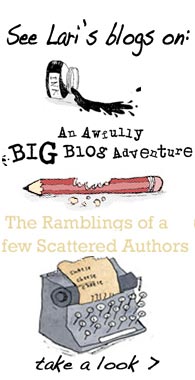| Mar 26 |
Archive for March, 2012Why editing can be even more emotional than writingI’m just recovering from the most emotional edit I’ve ever done. |
| Mar 05 |
Archive for March, 2012Original Questions From School VisitsI’m in the middle of lots of school visits around World Book Day, which you’d think would only last a ‘Day’ but seems to last at least a fortnight! One of the best things about lots of school visits is lots of great questions from pupils. I answer questions at the end of every session, so I probably answer dozens of questions a week, possibly even hundreds a week at this time of year. What amazes me is I’m still being asked new, original and surprising questions. There are questions which come up pretty much every time (when did you become a writer, how many books have you written, what’s your favourite book?) but I’m impressed that kids are still asking questions which I’ve not heard before, questions which make me think hard about my writing process. The best question I got on World Book Day was from a pupil at Stockbridge Primary in Edinburgh, who asked: “What’s more important for a writer, imagination or knowledge?” I thought that was fascinating, because creative writing teaching often concentrates entirely on imagination, but a story won’t be convincing if it’s full of errors. On the other hand, if you have lots of facts, but no flash of inspiration bouncing off the facts, then you haven’t got a story. I came to the conclusion that both imagination and knowledge are vital, but that I start with imagination then fill the gaps with research. New writers are often told to “write what you know” but if I only wrote what I know, then I’d write boring books about making packed lunches. Instead I allow myself to imagine stories about injured centaurs or living rocking horses, then I research the time or place or biology and write about the NEW stuff I know. Another question I was asked recently at Westercommon Primary in Glasgow was: “How do you know when a story is finished?” That’s a brilliant question, because we spend a lot of time thinking about good ways to start stories, and we may not think hard enough about how to finish them. I explained that my stories are finished when my characters have solved the main problem. Because it isn’t a story without a problem: a mystery, a quest, a baddie to be defeated. You spend the story trying to solve the problem, and once it’s solved, the story is over. Boom. The End. A pupil at St Mary’s in Glasgow asked: “When you reach a certain age, will you want someone else to continue your work?” That made me laugh, because I never want to reach a certain age… But the serious point we discussed was whether someone else could carry on my work, indeed any writers’ work, or whether it’s individual to us. If a person’s life work is campaigning for animal rights, or planting a forest, or running a jam factory, someone else probably could continue it, but no-one else could write my stories. Not exactly the way I write them. Because my stories come out of my thought processes, my experiences, my way of research, and my own individual (hard to explain and impossible to replicate) flashes of imagination. That’s the magical thing about writing: we all write differently. So no, if I ever reach a certain age and stop writing, that will be it. No more Lari Don books. I’d better get a move on and write another one while I still can! I’ve been asked other fascinating questions in the last few weeks, but my author events are noisy and fast moving, so I don’t often remember the exact questions afterwards. If you asked an original question which I’ve not mentioned – sorry! And if you can come up with a question which you think no-one has ever asked me before, please do ask it! You don’t have to wait until next World Book Day or until I visit your school, just post a comment here or email me on: info@laridon.co.uk And if any other writers want to share the best or most original questions they’ve been asked, I’d love to read them! |

Recent Comments